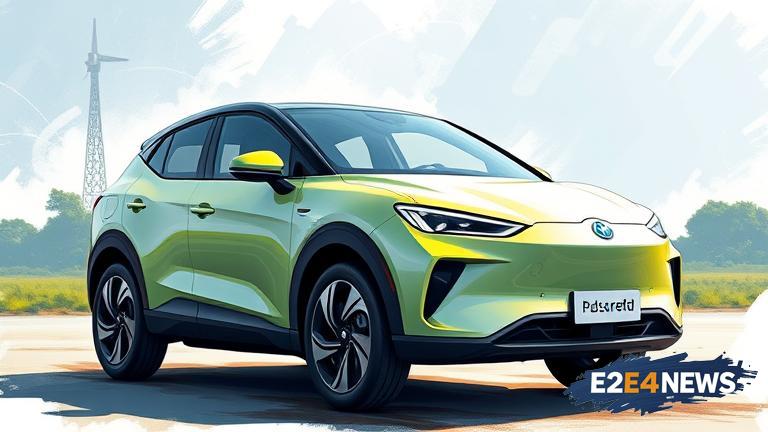The Indian government has announced a comprehensive plan to promote the adoption of electric vehicles (EVs) in the country. The plan includes a range of incentives and initiatives to encourage the use of EVs, including subsidies for manufacturers, tax exemptions for buyers, and investments in charging infrastructure. The government aims to have at least 30% of new vehicle sales be electric by 2030. To achieve this goal, the government will provide subsidies to manufacturers to set up EV production facilities, as well as incentives for research and development of new EV technologies. Additionally, the government will exempt EVs from certain taxes, such as road tax and registration fees, to make them more affordable for consumers. The plan also includes investments in charging infrastructure, with a goal of setting up at least 10,000 public charging stations across the country by 2025. The government will also encourage state governments to adopt EV-friendly policies, such as allowing EVs to use bus lanes and providing preferential parking. The plan is expected to create new job opportunities in the EV sector, as well as reduce the country’s dependence on fossil fuels and decrease air pollution. The government has also announced plans to set up a national EV mission, which will be responsible for coordinating the implementation of the plan. The mission will be headed by a high-level official and will include representatives from various government departments, as well as industry stakeholders. The plan has been welcomed by the automotive industry, which sees it as a major opportunity for growth and development. Several major automakers have already announced plans to launch new EV models in India, and the government’s incentives are expected to encourage more companies to enter the market. The plan is also expected to have a positive impact on the environment, as EVs produce zero tailpipe emissions and can help reduce air pollution in urban areas. However, some experts have raised concerns about the plan’s feasibility, citing the need for significant investments in charging infrastructure and the lack of standardization in EV technologies. Despite these challenges, the government is confident that the plan will be successful and will help India become a leader in the global EV market. The plan is part of the government’s broader strategy to reduce the country’s carbon footprint and promote sustainable development. The government has set a target of reducing greenhouse gas emissions by 33-35% by 2030, and the EV plan is seen as a key component of this strategy. The plan is also expected to have a positive impact on the country’s energy security, as EVs can help reduce dependence on imported fossil fuels. Overall, the government’s plan to promote EV adoption is a major step forward for the country’s automotive industry and is expected to have a significant impact on the environment and the economy. The plan is a testament to the government’s commitment to sustainable development and its willingness to take bold action to address the challenges of climate change. With the right investments and policies in place, India can become a leader in the global EV market and create a more sustainable and environmentally-friendly transportation system. The government’s plan is a major opportunity for the country to reduce its carbon footprint and promote economic growth, and it is expected to have a lasting impact on the country’s automotive industry and the environment. The plan is also expected to create new opportunities for innovation and entrepreneurship, as companies develop new EV technologies and business models. As the country moves forward with the plan, it is likely that we will see significant advancements in EV technology, as well as the development of new industries and job opportunities. The government’s plan is a major step forward for the country and is expected to have a positive impact on the environment, the economy, and society as a whole.
